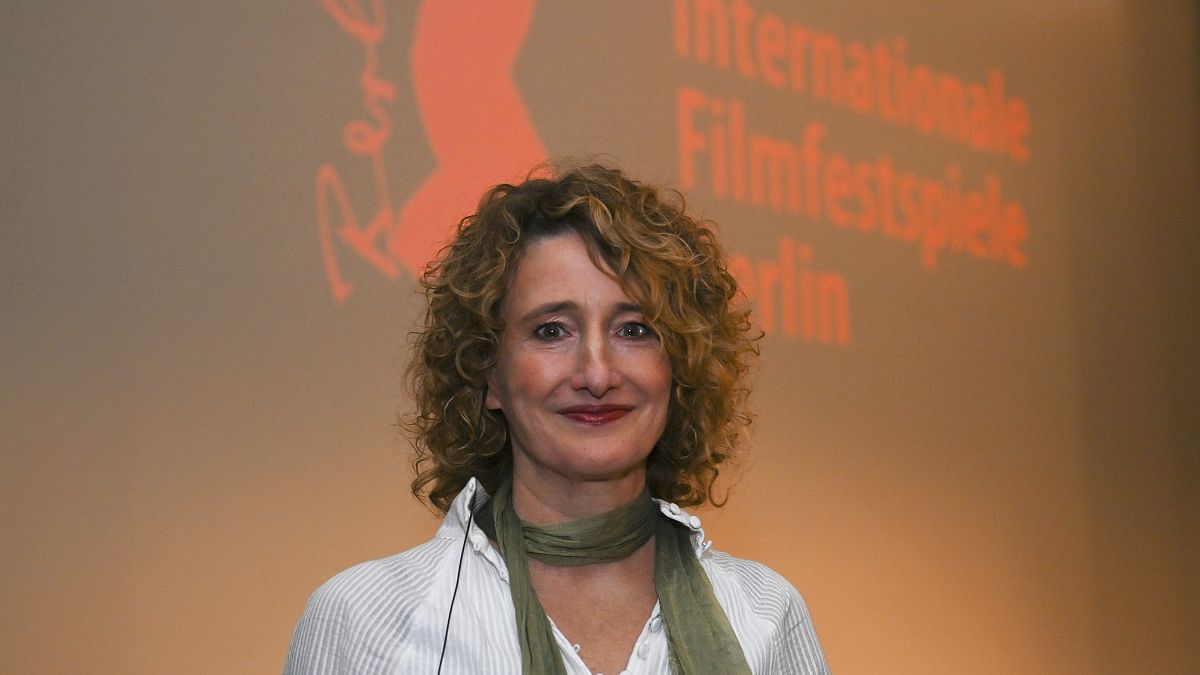In a recent interview, Tricia Tuttle, the new head of the Berlin Film Festival, says that the German position on the Israel-Gaza conflict is ‘putting artists off’ the festival.
Is Germany’s stance on Gaza leading artists to avoid one of Europe’s top film festivals?
According to the Berlin Film Festival’s new director, that may be the case.
Tricia Tuttle, who previously ran the BFI London Film Festival and succeeds Carlo Chatrian and Mariëtte Rissenbeek after having been appointed by Germany’s Culture Minister Claudia Roth, is about to helm her first edition this coming February. She has said that the impression Germany is giving with regards to controlling free speech on the Middle East conflict is directly affecting her first edition in charge, and that there are fears that criticism of Israel would be condemned as antisemitism in Germany.
Last month, the German parliament passed a resolution on the protection of Jewish life, a controversial move that has led opponents to say that it equates criticism of Israel with antisemitism.
“People are worried about: ‘Does it mean I won’t be allowed to speak? Does it mean that I won’t be able to allowed to express empathy or sympathy for the victims in Gaza? Does it mean that I, if I say this, then I also have to say this at the same time?,’ explained Tuttle to The Guardian.
“People are really uncertain about it. And I’ve talked to artists who are questioning whether they want to come,” she added.
Tuttle added that some filmmakers, whom she did not name, had questioned how free they would be to express themselves about the conflict, adding that her team were working to reassure the talent that “we are the Berlinale that they’ve always known and loved – that’s pluralistic and embraces many, many different perspectives”.
Adding to fears is the controversy that took place at this year’s awards ceremony, where Golden Bear winner Mati Diop, who won for her documentary Dahomey, made a direct political statement when accepting her award: “I stand with Palestine.”
Before her acceptance speech, US filmmaker Ben Russell, who accepted an award for his Encounters section film Direct Action, was seen wearing a keffiyeh – a sign of Palestinian solidarity.
Elsewhere, American filmmaker Eliza Hittman used her time on stage to call for a ceasefire in Gaza: “As a Jewish filmmaker who won the Silver Bear in 2020, it is important for me to be here,” Hittman said. “There is no just war, and the more people try to convince themselves there’s a just war, the more they commit a grotesque act of self-deception.”
Then there was Basel Adra and Yuval Abraham, a Palestinian-Israeli filmmaking duo behind the Berlinale documentary award winner No Other Land.
Adra used his acceptance speech to say that it was difficult to celebrate while his Palestinian compatriots in Gaza were being “slaughtered and massacred.” He called on Germany “to respect the UN calls and stop sending weapons to Israel.”
Abraham, then took to the stage; “We are standing in front of you. Now, we are the same age. I am Israeli, Basel is Palestinian. And in two days, we go back to a land where we are not equal.”
He continued: “I am under civilian law; Basel is under military law. We live 30 minutes from one another but I have voting rights. Basel does not have voting rights. I am free to move where I want in this land. Basel, like millions of Palestinians, is locked in the occupied West Bank. This situation of apartheid between us, this inequality, has to end.”
The speeches of Abraham and Adra were criticized by the Mayor of Berlin, Kai Wegner – of the Christian Democratic Union party.
On X, he wrote: “Anti-Semitism has no place in Berlin, and that also applies to the art scene. I expect the new management of the Berlinale to ensure that such incidents do not happen again.”
The description of the awards ceremony as “antisemitic” led to death threats against Abraham.
In a post on the Berlinale’s Instagram page, Tuttle addressed the controversy around the film, defending the No Other Land filmmakers by saying that “discourse which suggests this film or its filmmakers are antisemitic creates danger for all of them, inside and outside of Germany, and it is important that we stand together and support them.”
In its listing page for the film upon its release last month, the Berlin city website Berlin.de had described No Other Land as “exhibiting anti-Semitic tendencies”. This was highlighted by Abraham on X, who said, “I feel unsafe and unwelcome in Berlin of 2024 as a left-wing Israeli and will take legal action.”
Berlin.de ended up changing the wording of the page to: “An earlier version of the text stated that this film “exhibits anti-Semitic tendencies”. This assessment was incorrect and inadmissible. It has therefore been removed. Berlin.de apologizes for this error.”
Tuttle told The Guardian: “It’s been a really hard year for the discourse around the festival. This has dominated a lot of time.”
The 75th edition of the Berlinale runs from 13-23 February 2025, with the US director Todd Haynes serving as Competition Jury President.

